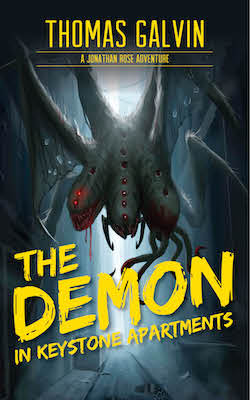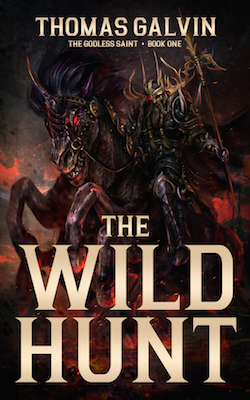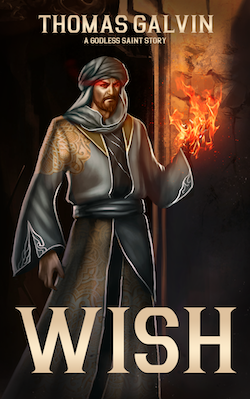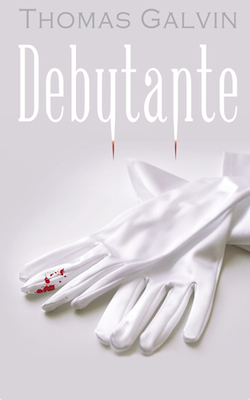The Black Tapes - Post Mortem

The first podcast I ever loved was Welcome to Night Vale.
We were driving to Maine, which is about an eight hour trip from my house, and my wife told me there was something I needed to hear. She called it a “podcast,” and since I am an actual human being who can put the prefix “pod” together with the suffix “cast,” I didn’t even need her to explain that it was like radio for the internet.
But I did need an explanation. I needed her to explain why she was wasting my time. I knew what a podcast was, but I didn’t think it could be anything important. I didn’t think it could be anything amazing. I didn’t think it could be something that I loved.
But after five hours of listening to Cecil Palmer tell me strange tales from his strange town, I was in love. Night Vale was funny and creepy and touching and horrifying, and it was perfect.
I listen to a lot of podcasts now. I listen for entertainment, for news, for social commentary, for ways to make myself and my world better. I listen in the car, walking the dogs, doing the dishes. I almost always have my headphones with me now, and it’s all because of that one, first podcast.
The Black Tapes wasn’t my first, but it was the best.
I fell in love with podcasts because of Night Vale, but it wasn’t until I heard Alex Reagan’s exploration of life, faith, and sometimes the supernatural, that I realized what a podcast could be. It wasn’t until then that I realized how amazing this new format could become.
I first read about The Black Tapes on IO9. They said that the tagline was simple: a ghost hunter who doesn’t believe in ghosts.
With that one phrase I was hooked.
I’m not religious, and I don’t believe in the supernatural, but I love all things creepy, mysterious, and inexplicable. In Richard Strand I found a kindred spirit, someone who lives in the world I want to live in, a world of ghosts and demons, ancient conspiracies and modern atrocities, but also a man of science, a man who sees the terrible and, instead of running away, searches for truth.
“Hello, this is Richard Strand. I’m returning … eleven calls from someone named Alex Reagan.” Again, in one sentence, we knew everything we needed to know about our host. We knew, in just this short snippet, that Alex was dogged, unrelenting. We knew that she wouldn’t take no for an answer. We knew that she wouldn’t stop in her quest for the truth.
In Alex, I saw another facet of what I hope I would be if placed in that position. If I was presented evidence of something so important, evidence that the world as we know it might not be all that there is, evidence that the things that go bump in the night might just be real, I want to believe that I would devote myself to finding out the truth. I want to believe that I would go after the answers with all my resources. I want to believe that I wouldn’t just go back to my job on Monday, because the bills have to be paid.
Richard Strand and Alex Reagan let us join them in a world that’s better than ours. Well, not better, but more exciting, more fascinating. A world filled with mystery and fear and things that can’t possibly be true, but that also can’t be explained.
What began as a collection of loosely-connected, creepy stories quickly evolved into the tale of a man who may be a murderer, and a man who may be hunted by the Devil himself. A man who may be in denial, or a man who may be absolutely right. A man that could be standing in the epicenter of a vast an ancient plot to end the world, or a man surrounded by people so blinded by faith that they can’t see the truth in front of their eyes.
I loved that The Black Tapes never answered the central, burning question: “is this all real?” I loved that, no matter how creepy or how real, there was always a plausible explanation, always a reasonable doubt.
This was a ghost story for people who don’t believe in ghosts.
I still remember the first time I heard The Unsound. It was around 11PM, and I was walking my dogs down a long, dark back street. When that sound played, I was genuinely scared. Even though I knew it wasn’t true, it felt like there was some dark, unknowable thing lurking in the shadows, waiting for me.
I remember Alex’ sleep tapes. They spoke to me because I have insomnia, because I have bad dreams. If I was in her place, I’d like to think that I would be strong, unshakable, that I would press on no matter what … but I know that I might not. Alex was as vulnerable as I probably would have been.
That’s good storytelling, and that’s how I’m going to remember The Black Tapes. The people at Pacific Northwest Stories gave us – gave me – something incredible, something that I loved, and for that, I extend my heartfelt thanks to Pau Bae, Terry Miles, Lori Henry, Christian Sloan, and everyone who worked so hard to make something so powerful.
It wasn’t all sunshine and skittles, of course. Season Two became less about Alex interviewing witnesses to the paranormal and more about telling us that she had interviewed witnesses to the paranormal. Richard Strand, the erstwhile center of Alex’ investigation, largely disappeared for long chunks of time. Coralee, the focal point of one of TBT’s most important mysteries, appeared, spoke off-the-record to Richard, and vanished again.
Plausible plot reasons were given for this, but from the outside looking in, it seems like TBT was becoming too expensive to maintain. The scope - and the voice cast - needed to be trimmed down if the story was to continue. And then we faced a year-long break, and a final, abbreviated season.
The question, of course, was wether or not they could wrap up this sprawling mystery in just six episodes.
Now that it’s over, Season Three doesn’t feel like the end of a story. Too many new mysteries were introduced in these last episodes. The occult school of Pythagorus, it’s connection to the Horn of Tiamat and the Order of the Ceonophus, the Oneida Community, the children who all look like Sebastian Torres, the importance of the Strand family’s ancestry, the twisted science of Daeva Corporation, the assassination of an American President, the reappearance of Howard Strand … this very clearly wasn’t meant to be the end. The writers were clearly moving pieces onto the board for whatever story was supposed to come next, a story that will now never be heard.
It feels like a setup for a fourth, and probably a fifth season. It feels like the people of PNWS ran out of time, or money, or both, and had to essentially land a plane with no engine and no landing gear. It feels like they had to make the best of what they had left.
I don’t think anybody is satisfied with the ending of The Black Tapes. We wanted answers. We wanted to know what role Richard Strand was to play in the End of All Things. We wanted to know how Simon Reese seemed to always have the next clue, the next piece of the puzzle. We wanted to know what Amalia was doing when she chanted dark things over Alex’ sleeping form. We wanted to know what happened to Charlie, and to Percival Black, and to Thomas Warren. We wanted to know what would happen if someone finally managed to play the Mysterium. We wanted to know …
But we never will, so let’s talk about what The Black Tapes did accomplish in its final episode.
The tagline for The Black Tapes is “do you believe?” It’s not “here is what you should believe,” not “here are all the answers.” From the beginning, TBT was about ambiguity. What is Simon Reese? Who is Tall Paul? What are the powers of a demon board, or the Unsound? Is Alex being objective, or has she gone crazy? Is Richard Strand really as skeptical as he claims?
What do you believe?
The Black Tapes was always at its best not when it was providing answers, but when it was asking questions. Like the greatest horror movies, the terror came not from what we were shown, but from what we were left to imagine.
We know some things very clearly. Richard Strand is fiercely devoted to the truth, or at least the truth as he sees it. We know that he is willing to perform acts of self destruction while seeking after that truth. We know that his feelings for Alex are complicated, and we know that her feelings for Richard are equally difficult.
And we know what Alex chose. We know that she chose to be vulnerable. We know that she chose to risk everything. We know that she was willing to throw everything away. We know that she was strong enough to risk rejection. In this scene, Alex was a hero. Not a hero to us. Not a hero to the listeners, to the people who wanted the secrets of an occult mystery. She was a hero to herself. She knew what she wanted, and she risked everything to claim it.
The very last episode of The Black Tapes asks one more question: what will Richard Strand choose? Will he throw himself to the wolves for the slim hope that he will finally get the answers he has sought for all these years? Or will he throw himself into something else, something new and something terrifying, for the slim hope that this time it will be different, that Alex won’t leave him the way Coralee did?
We’ll never know the answer. But we were never supposed to know the answer. The Black Tapes was always about the question: what do you believe?
This is frustrating. It’s hard to see something that I loved so much end, and it’s harder to see it end so abruptly. I don’t think this is the story they wanted to tell, at least not all of it.
It’s fitting that The Black Tapes ends with one final question, but it isn’t satisfying.
Part of me hopes that Paul Bae will tell us what would have been, if The Black Tapes had continued. I want to know what was waiting for Strand in Geneva. I want to know what Thomas Warren was really doing in Switzerland. I want to know if Percival Black was really trying to end the world. I want to know if Amalia was replaced by a demon.
And, yes, I want to know, from the man who created this whole thing, what he believes. Not in the real world, but in this world we’ve shared for the past three years. I want to know the answer to that one central question: was Richard Strand right, or was he wrong?
But I don’t want to know which plane Richard Strand boarded. I don’t want to know if he chose answers over love. I don’t want to know if he left Alex alone and broken and afraid. I don’t want to know the answer to that even more important question, because both answers are haunting and beautiful and terrible, and I want to feel the pain and the joy of both of them at the same time, and I can’t do that if one of those possibilities is taken away from me.
I know what my answer is. I know what I believe. But I don’t want to know if I’m right.
The Black Tapes was an ambitious attempt to tell a massive story in an entirely new format, and I think they succeeded more than they failed. Alex Reagan and Richard Strand are as much a part of my story, as much a part of me, as Fox Mulder and Dana Scully, as Buffy and Angel and Spike, as Captain Reynolds and his crew. There were mistakes and missteps, and it feels like this was all taken away too soon, but I would much rather have what we have than have nothing at all.
The Black Tapes was one of the best stories I’ve ever listened to, and for that, to everyone involved in its creation, I say thank you.
 TM
TM






